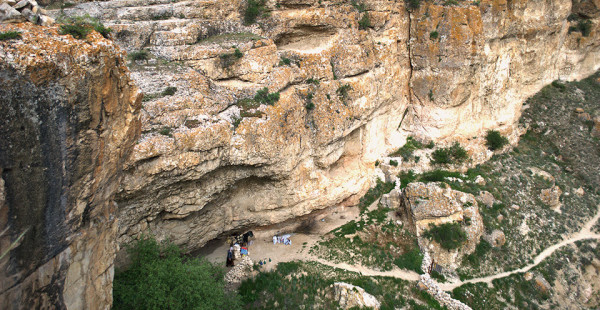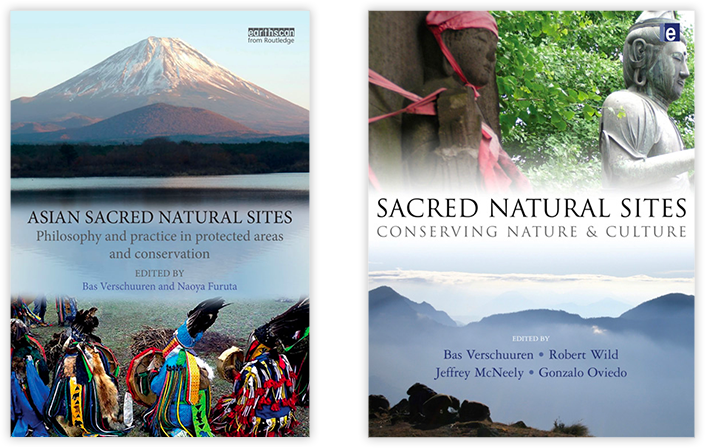
The Sacred Natural Sites Initiative regularly features “Conservation Experiences” of custodians, protected area managers, scientists and others. This post features the experiences of Ms. Cholponai Usubalieva-Gryshchuk and Gulnara Aitpeva respectively Research Officer and Director at Aigne Cultural Research Center in Bishkek Kyrgyzstan. Aigne has been working on sacred natural sites in Kyrgyzstan for nearly a decade and has been instrumental in recovering the local governance systems in place for sacred sites as well as documenting the many sacred sites that have now become more prominent part of Kyrgyz cultural history. Click here to read the full case study on “Nyldy-Ata gorge: complex of sacred sites in Kyrgyzstan”.

The Nyldy-Ata Gorge is situated in the rocky area in the Echkilüü Mountain gorge of Ozgorush village, Talas province, in the North of Kyrgyzstan. The entire gorge is connected to a complex of twenty-two sacred sites. Photo: Cholponai Usubalieva-Gryshchuk.
The Nyldy-Ata gorge is situated in the rocky area in the Echkilüü Mountain gorge of Ozgorush village, Talas province, in the North of Kyrgyzstan. The entire gorge is connected to a complex of twenty-two sacred sites. The water emerges from a cone-shape hollow in a big flat stone and streams through a waterfall eastwards where it ultimately leaves the valley. Below the waterfall is a cave in the mountain with sacred water dripping from the wall also called ‘the court’ by local custodians. There are sitting mats and cookware and three hearths suitable for big cauldrons for pilgrims and custodians.
Kyrgyz people look at themselves in unity with the universe and the surrounding nature. Sky, plants and water are the building blocks of nature. For traditional practitioners it is not possible to see a person distinct from nature. When connected with nature a person can be healed by it. There are different opinions about the use of a sacred site’s healing potential. According to some visitors “it is helpful when you come to the site with will and belief”. If there is a close connection between a person and the place, then results are often positive. Thus, people who feel the connection and understand it have common visions on how to protect the sacred site. Key ideas are raising public awareness, getting legal recognition and keeping the place clean and nourished.
One of the priorities of Aigine is to develop legal protection for sacred sites. According to the experts and carriers of traditional knowledge, central issues are the rules regulating behavior in the sacred sites of Kyrgyzstan, and the recognition of their cultural and ecological significance. Since the outset, Aigine has been seeking to form a balanced team representing all stakeholders to develop these laws. The majority of sacred sites in the country are unique in their beauty and the cleanliness of the environment. There is great potential to turn such zones into sites of popular rest and spiritual tourism.
Aigine Cultural Research Center, which leads conservation and promotion of the Nyldy-Ata gorge, collaborates with international organizations with expertise and interest in cultural and biological diversity, religion, spirituality, folklore and education, but also with students from Talas State University and with local custodians.Read more.






